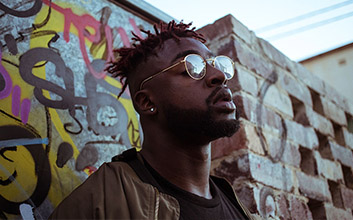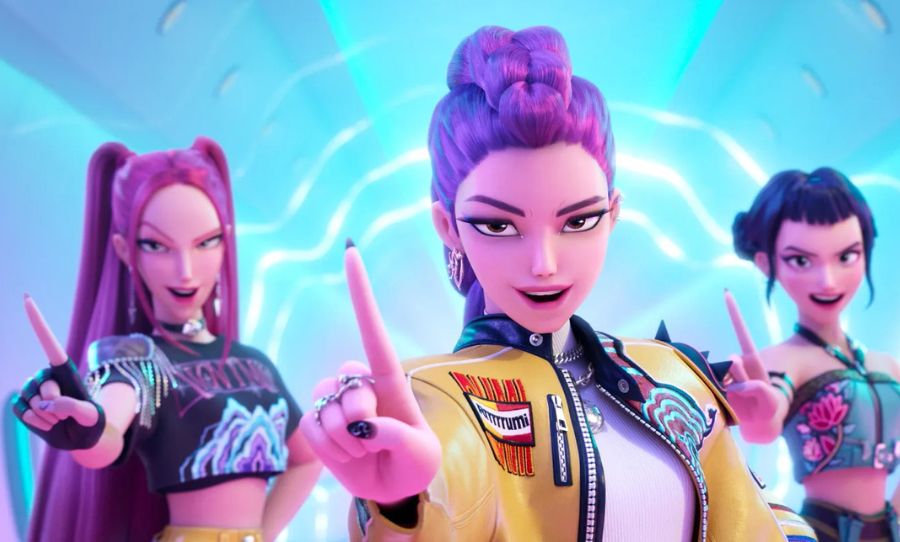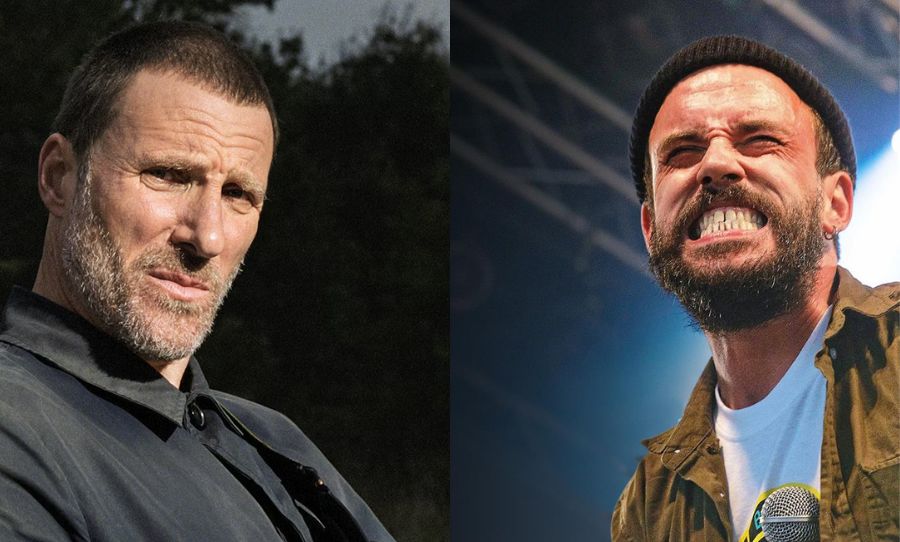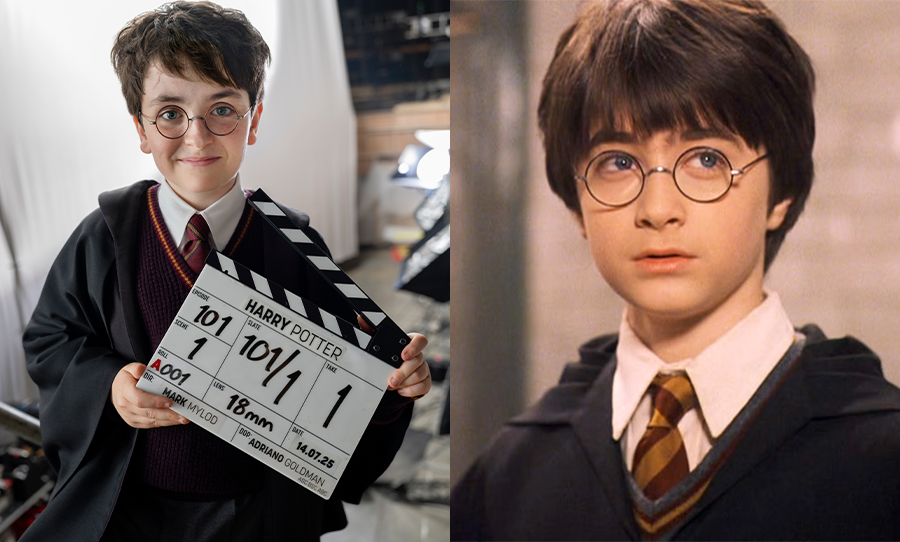This article appears in print in Happy Mag Issue 9. Grab your copy here.
The thoughtful, easy-going vibes you hear in Kwame’s music is emulated in the man himself. The Sydney local is dedicated to his craft and his mission: he’s here to make music that is authentic, to help you feel something, and to push Australian hip-hop into the global scene.
His new EP Endless Conversations represents the life he knows intimately now. Youth, relationships, friends and home. He also wants to show you that Australian hip-hop isn’t broken; that it is alive in the bedrooms of kids with a computer and a dream, ready to make something that sounds like everything and nothing you’ve heard before.
This new generation of hip-hop artists have international role models who blur all the lines of what it is to be a rapper. Kwame has looked up to Manu Crooks since they sat in the same church pews as kids. Now, he admires the way Manu’s music has overcome national boundaries. It’s a new world, and this hip-hop is meant to sound global.
We sat down with Kwame at Young Henrys to chat about Endless Conversations, staying independent, and what it means to be a hip-hop artist in Australia in 2018.
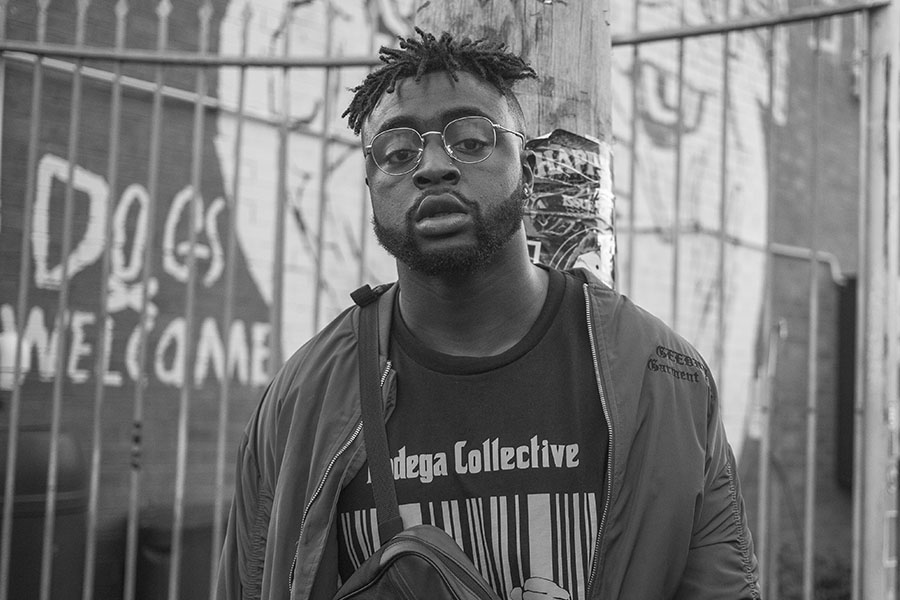
“We’re evolving now, this isn’t the sound, this was so like ten years ago.” We chat with Sydney rapper Kwame about what it means to be an Australian hip-hop artist in 2018.
HAPPY: Hey man. So when did ‘Kwame’ come about?
KWAME: Kwame came about when I wanted to take music seriously. It was pretty much me finding myself, because there was a time when I was kind of doing music, but then it wasn’t something that I was taking seriously. This is at a time when I was literally just like working at Maccas and literally just like going out every weekend, and I was like, ‘man, this isn’t the life that I want to live’. I had just finished school and I decided not to go to uni because I was like, ‘this music thing will happen, I know it will’. But it didn’t feel like it because at the time I was just doing all this stupid stuff.
And then something just hit me one day, and I was like, you know what, like I’m never going out clubbing, I’m not drinking, I’m not smoking, all that stuff. I’d rather just stay sober, do me, and just stay focused. And then literally from that, that’s when the Ferg thing happened, triple j stuff happened, EP came out, toured the country and now we’re at WOW and Endless Conversations, and yeah, things are where I’ve had them visioned. But there’s obviously still more I want to accomplish and reach.
HAPPY: Totally. And how would you describe Endless Conversations?
KWAME: Endless Conversations is a journey of me finding a balance between relationships and also my career that I’m trying to face. I wrote it in a time when I was going through those things and it was hard trying to balance the two because things were just going back and forth and it was just playing a lot with the creative direction.
With NO TIME it kind-of starts off with me trying to get out of ‘endlessness’. I start the narrative by telling this girl, ‘look, I need to get out of this. I need time for myself. I need to focus on this’. And then going into WOW, which may seem braggadocios in a sense, but kind-of adds to the story because that’s me then breaking out and being like oh, amazing, you know, I’m on my own now, I can focus on myself, I can do these things.
Then it goes into WHO DAT and although that’s kind of on the same wavelength, that’s more of me then going away and doing my stuff and like, ‘oh wait, who is this person, who’s Phil Fresh and I, who are these people, we’ve heard about them so much’. Then it continues the conversation of our names popping up to different people. But then bringing it back to the love side, where at the start, the sample, which isn’t actually a sample, I got my friend to record that, she sings ‘who is this person I used to know so deeply’.
HAPPY: On COFFEE, or, CHANGE?
On WHO DAT. She says, ‘I’m screaming on top of my lungs but you can’t hear me’. That’s me doing WOW, going off, doing my own thing, and that’s almost like her in the background seeing me doing all this stuff, being like, ‘you’re not the person that I knew you for’. Then it comes to COFFEE – almost the middle ground – where, similar to the setting where we are in now, just at a coffee shop, sitting, talking, she’s asking, ‘Where have you been? Where’d you go? I’ve been sitting here since you ran’.
And she’s been seeing what I’ve been doing with WOW and WHO DAT, and she’s just like, ‘what’s going on’. And I’m just sitting there like, ‘oh, I don’t know’, and I can’t really say anything because I’m nervous and so I can’t keep the conversation going. And then it changes when I’m able to then break out and speak upon it.
Then coming into FREEWAY, which is almost like a celebration in a sense, like ‘we made it’. At the same time, it’s quite cheeky because in the verse, I’m complaining about the person I love but then in the chorus, I’m saying ‘driving down the freeway, I heard that you miss me’, etc. That’s more just like whatever happens, happens, you know? There’s just this long road that we’re facing. We’re going to have to go through it in order for us to overcome the issues that we face.
HAPPY: So it’s one whole relationship in an EP.
KWAME: Yeah, literally.
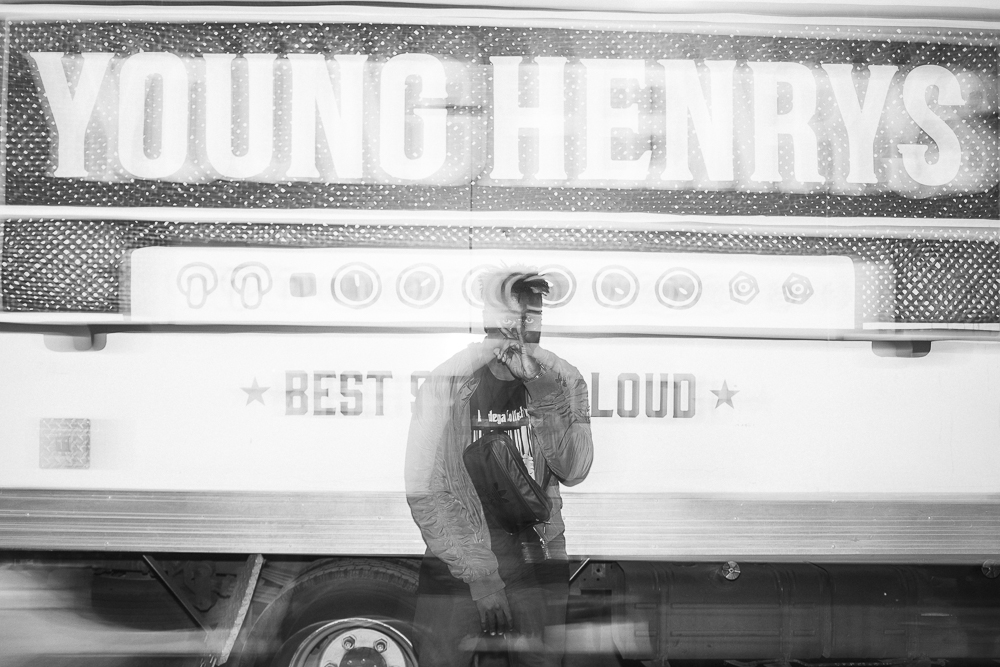
HAPPY: Nice. I wanted to ask you about WOW. It’s just resonating with people so much.
KWAME: Yeah it’s crazy.
HAPPY: Did you know that it was going to be something special when you wrote it?
KWAME: Honestly, not at all. Like, it was at a time when I was working with a lot of artists, producing for them, and I didn’t have time for myself. Then I said, ‘I’m going to just lock myself in my room’. And then I just started the beat and the melody was just in my head. I was just bouncing to it. And whenever I make music, it’s based off the vibe or feeling or emotion that I’m feeling at that time. So, as I was bouncing, I just tapped the metronome and then got to 160 [BPM], and I was like ‘ok cool’. And then, for some reason, I just knew the sounds that I wanted.
I knew that for something like this I really had to think about what I was writing because I really wanted the lyrics to be focused for people to pick out and be like, ‘oh, that’s a bar’, ‘oh that’s smart’, ‘yo, that’s a simile or a metaphor’, etc. And then, I showed it to a few people in the studio and the response I got was crazy because a lot of people were like, ‘yo, what is this!’ and I was like ‘its just a song I made’…
HAPPY: Have you been hearing people sing it back to you on your tour?
KWAME: Oh one hundred percent. I was in Perth and Melbourne and playing WOW there was just crazy, because everyone was just there singing it, and I was like ‘what?’. Perth, especially, I’m on the other side of the country and you guys are just like singing it. And I had a lot of people come up and like ‘yo, I love your stuff’, ‘I’ve been hearing you all over Triple J’, ‘WOW’s my jam’, ‘the EP is amazing’. And I was like, man, like that’s crazy. And I’m just on the other side, like making music for the love and fun of it. Put it out and there are people just across the country that are just like, wow. Like damn, it’s a dope feeling.
HAPPY: You released the EP independently, is that right? Was that a choice or did it just happen that way?
KWAME: Nah, it was definitely a choice. I don’t know, I like the fact that I can just be independent because no one can get in the way of your creative control. It’s all you. And, no disrespect to labels or anything, sometimes when you do that label route, things can get messy.
But with the whole label thing, when you sign to a major, it’s cool like, you’re given this advance, and you’re like ‘oh my god, amazing’, but what comes with it is the way you change as a person, the way you change as an artist, just everything about it. It’s not even what you were doing before. And I just feel like, you can do anything you want if you put your mind to it, and that’s what I want to like show to people. Anyone that’s in my position or is making music, you don’t need a label, you don’t need this. Honestly, you need to believe in yourself because if you believe in yourself, you can literally achieve anything. It starts with you and obviously surrounding yourself with people who just want to see you do best is the number one thing.
HAPPY: On WOW there’s a lot of representation of yourself and your home and your culture and then on COFFEE and CHANGE there’s lots of personal stuff, little conversational recordings and things. What did it meant to represent yourself that deeply in the EP? Is that important to you?
KWAME: I think it’s definitely important, because that’s how fans are going to connect to you. If you don’t represent yourself through your music, I feel like fans aren’t really connecting with the artist. I mean, that’s what I want when I listen to music. I want to be able to connect with the creator and what their thoughts were at the time, and like I want to be able to feel that emotion, and I think that was something I was able to achieve. Because when I write, I don’t know, I don’t really like doing… how can I explain it… making party music. I don’t know. I don’t like doing that, ‘I’m at the club and its…’, I don’t know, I hate that. I like listening to it, but me making the music, I’m like, that’s not me. I’m just a kid who still lives with his parents.
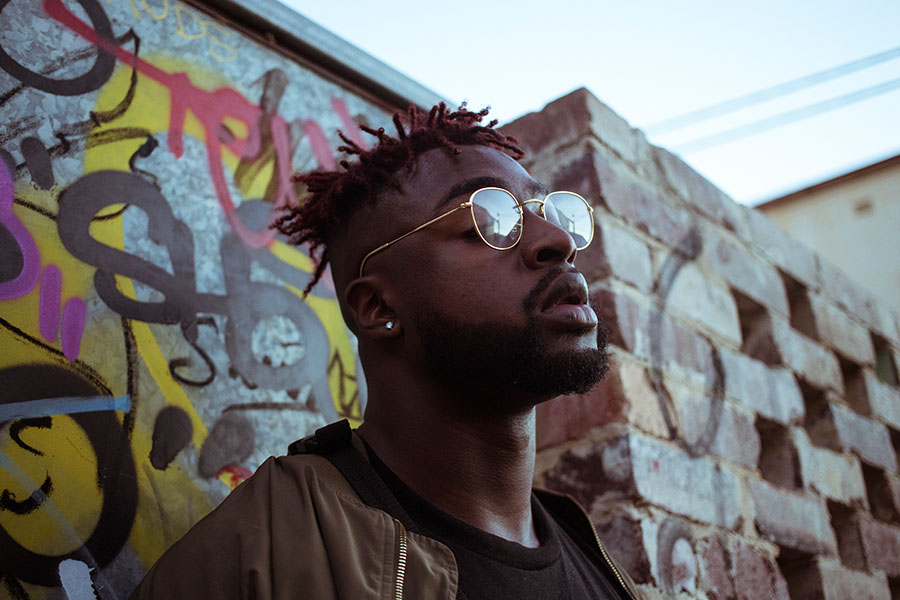
HAPPY: That’s what’s refreshing I think about the EP. The little relationship things. The subtle things.
KWAME: In WOW, I literally say, ‘I still charge up my opal’. I still catch the bus, like…
HAPPY: Yeah, that was good.
KWAME: I’m not going to lie about that. I’m not going to say, like, ‘I have all these chains’ and that. I just like being real, and being honest with what I have.
HAPPY: It reminded me a bit of that, do you know Royals by Lorde, that whole, ‘I’m not going to sing about being famous or rich‘. That isn’t my life.
KWAME: Yeah, and I feel like people gravitate towards realness. That’s like the best thing to have. Stay true to yourself and people will recognise it.
HAPPY: So on Facebook, when you released the EP, I’m just going to quote you to you, you said: “I want this project to be living proof, a testimony to anyone who continues to doubt the state of Australian hip-hop”.
KWAME: Hundred percent, yeah.
HAPPY: Could you elaborate? What did you mean?
KWAME: By that, I mean there’s been this ongoing argument on Australian hip-hop. And no disrespect to like the 360s and the Kersers or Illys and that kind of era. But, a lot of the music that’s coming out now is making international waves and it’s just being seen on a bigger scale, and like, a global scale even. And a lot of people doubt the state of Australian hip-hop and it sucks because I just think the quality that is coming out, in my opinion, is better than what was there before.
If we think about it, going onto the artists before us, I mean, who did they really look to when they were making music? For us, growing up, like my generation, we looked overseas, and obviously overseas has that international appeal and market, so the people that are making music in my generation now are making it from that perspective. It’s not just that typical sound that can only fit in here. It’s more just like creating anthems for people across the world to listen to.
And, I felt like Endless Conversations was something that I think has never been seen before in this country and I wanted people who ever doubted it to be like, nah, look at this body of work and tell me if you can doubt the state of hip-hop in Australia, because you can’t. This is just some kid in a bedroom that made a project and put it out there on its own. I want to restore the faith of the naysayers when it comes to Australian hip-hop and I wanted that to be the standard of our country.
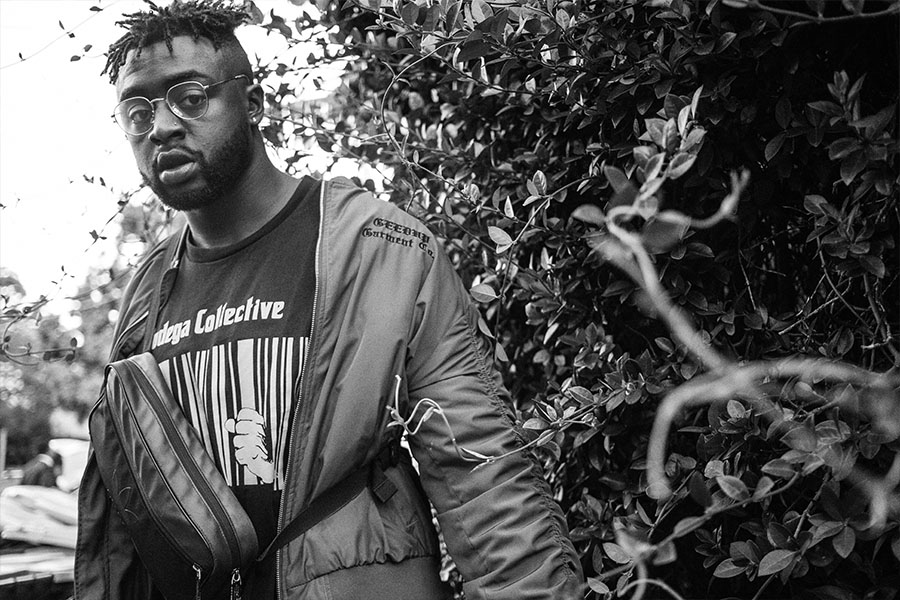
HAPPY: Who do you think are some other artists that are changing the Aussie hip-hop game?
KWAME: To be honest, I can only say one. I think it’s Manu [Crooks]. I’ve known him for ages, like we used to go to church together. I was like ten and he was like sixteen, eighteen or something. That was ages ago. I just think what he’s doing is dope. Like taking it international… and it’s cool what he’s doing. And again, he just has that international appeal. And when people look at him they kind of just say ‘wow, you’re Australian? This is coming out of here?’.
That’s pretty much like the same kind of response I want for people to mention when they listen to my music or the stuff that I’m involved in. Just for them to be like, ‘oh wow, I couldn’t even put a country behind that, because, sonically, it sounds, international‘. I think he’s one of the people that are doing it. But that’s really the only person that I can think of.
HAPPY: So, do you think it’s important for something to sound “Australian” or you just think it’s important for something to sound universal?
KWAME: Nah, like, it’s hard… I guess, what can we say sounds “Australian”? No dis, I think obviously 360 sounds Australian. I think Illy sounds Australian. It’s more just the sound.
HAPPY: It’s kind of like rock-rap.
KWAME: Yeah, it’s just very simple like hip-hop drums, with keys, a grand piano that’s been recorded, and they’ve got an artist who’s singing like a big hook and then they’re kind of doing a melodic rap, and I don’t know, that sound has died out heaps. And it’s getting over-saturated. I hear it quite a lot, and I’m like, ‘we’re evolving now, this isn’t the sound, this was so like ten years ago’. Because it was big then. And there’s obviously still a market for it and it’s not more so just about making music for the market but I just think the generation that I’m in now have different influences and just have different ways of thinking.
Obviously everyone wants to make it global. I mean, I obviously want it too. I have plans for that, but my biggest goal is to change, create a new culture, to inspire the next generation that will be after me, so that way, they can look at me like ‘oh, I didn’t need a label to do this. I can literally do this on my own’, like ‘I didn’t need to look at someone up in the industry and be like, yo, yo, I need you to be like this’. It’s more just like, start with your friends and family and keep it that way because they’re the ones that are by your side day by day, and you really need them, and that’s the way you can get to the top.
HAPPY: And I think that kind of really old school version of Aussie hip-hop was never sort-of all-inclusive. It was very masculine and quite white.
KWAME: You know, I don’t want to bring race into it or anything.
HAPPY: No, fair enough. But I mean, even as a woman it left me out of the conversation, and it was very like…
KWAME: Yeah, yeah and even then, I literally could not even tell you one female artist in hip-hop at that time, and even now, we’re seeing more of it, which is amazing. I really want to push the female hip-hop scene in Australia, because I think there are quite a few artists doing their thing and I just want to be able to like give them a platform for everyone to see and be like, oh wow we have a growing female hip-hop scene. I think it’s cool. Hip-hop is very male-dominated, but there’s room for everyone.
Kwame’s new EP Endless Conversations is out now. Check it out here.
This article appears in print in Happy Mag Issue 9. Grab your copy here.
